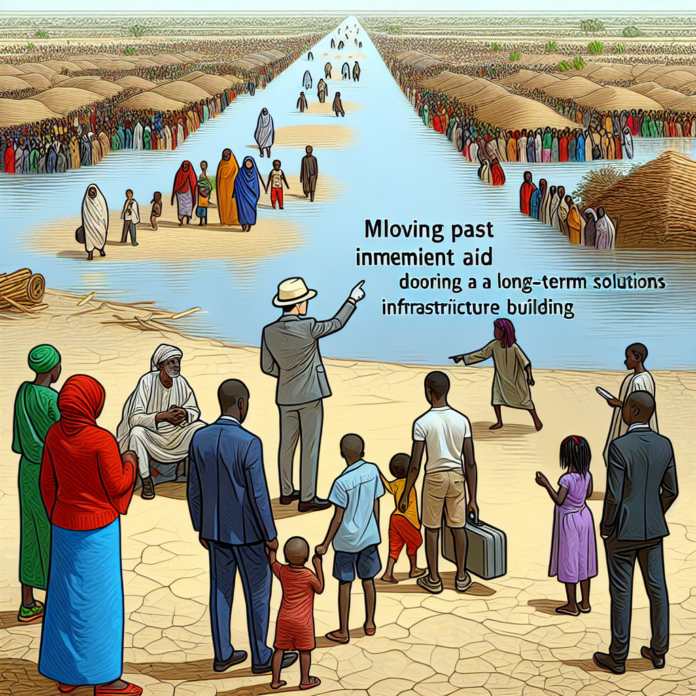Borno Floods: Beyond Relief New Telegraph Newspaper
Borno Floods: Beyond Relief
New Telegraph Newspaper
The recent floods in Borno State have left a trail of devastation, impacting thousands of lives and livelihoods. While immediate relief efforts are crucial, it is imperative to look beyond temporary solutions and focus on long-term strategies that address the root causes of such natural disasters.
Communities in Borno have been particularly vulnerable due to a combination of factors, including climate change, deforestation, and poor urban planning. Climate change has exacerbated weather patterns, leading to more intense and unpredictable rainfall. Deforestation, driven by agricultural expansion and the need for firewood, has diminished the natural barriers that previously helped mitigate floodwaters. Furthermore, inadequate urban planning has resulted in poor drainage systems and unregulated construction in flood-prone areas.
Immediate relief efforts, including the provision of food, shelter, and medical aid, are essential for the survival of affected communities. However, these measures are only temporary and do not address the underlying issues that contribute to flooding. To build resilience against future floods, a multi-faceted approach is necessary.
Reforestation initiatives can play a significant role in reducing flood risks. Planting trees along riverbanks and in deforested areas can help absorb excess rainfall, stabilize soil, and reduce the speed of water flow. Additionally, investing in modern and efficient drainage systems will ensure that excess water is channeled away from populated areas, minimizing the impact of heavy rains.
Urban planning reforms are also critical. Authorities need to enforce building regulations and prevent construction in flood-prone zones. Implementing zoning laws and creating green spaces can help absorb rainfall and reduce the likelihood of flooding in urban areas.
Community engagement and education are equally important. Local populations need to be informed about the risks of deforestation and the benefits of sustainable practices. Training programs can empower communities to adopt environmentally friendly techniques and participate in reforestation efforts.
Moreover, the government and international organizations should collaborate on climate adaptation strategies. By investing in early warning systems and disaster preparedness programs, communities can be better equipped to respond to imminent threats. Access to real-time data and predictive models can help authorities make informed decisions and deploy resources more effectively.
In conclusion, while immediate relief is necessary to address the urgent needs of those affected by the Borno floods, a comprehensive and sustainable approach is essential to mitigate future risks. By focusing on reforestation, improved urban planning, community education, and climate adaptation, we can build resilience and protect vulnerable communities from the devastating impacts of flooding.


